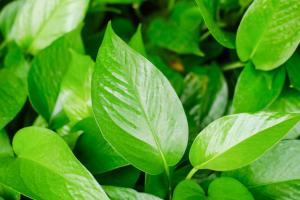Introduction
Black walnut trees are prized not only for their nuts but also for their beautiful wood. However, they produce a chemical called juglone that can be harmful to some neighboring plants. If you have a black walnut tree in your yard and want to plant something around it, you need to be cautious and choose plants that can tolerate juglone.
What is Juglone?
Juglone is a natural toxin found in black walnut trees. It is present in all parts of the tree, including leaves, bark, and nuts. Juglone is released into the soil through the roots and fallen leaves, and it can remain in the soil for up to two years after the tree has been removed. Juglone is toxic to many plants, and it can cause stunting, wilting, yellowing, and death of affected plants.
Plants That Can Tolerate Juglone
Fortunately, some plants can tolerate juglone and grow well near black walnut trees. These plants include:
Black raspberry
Mayapple
Ferns
Columbine
Virginia creeper
Goldenrod
Sweet woodruff
Wild ginger
These plants have evolved to tolerate juglone and can grow well in its presence. However, it is important to note that the concentration of juglone varies depending on the age and health of the black walnut tree, so even these plants may show some signs of stress if the concentration is too high.
Plants to Avoid
Some plants are highly susceptible to juglone and should be avoided near black walnut trees. These plants include:
Tomato
Potato
Pepper
Blueberry
Azalea
Rhododendron
Lilac
Hemlock
These plants are highly sensitive to juglone and can suffer severe damage or death if grown near black walnut trees.
Conclusion
Knowing what plants can tolerate juglone and what plants to avoid is essential for successful gardening near black walnut trees. By choosing the right plants, you can create a beautiful and thriving garden in the presence of a black walnut tree.

 how many times do yo...
how many times do yo... how many planted tre...
how many planted tre... how many pine trees ...
how many pine trees ... how many pecan trees...
how many pecan trees... how many plants comp...
how many plants comp... how many plants can ...
how many plants can ... how many plants and ...
how many plants and ... how many pepper plan...
how many pepper plan...































